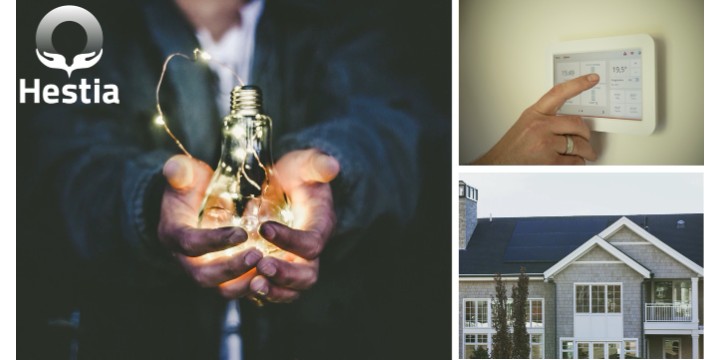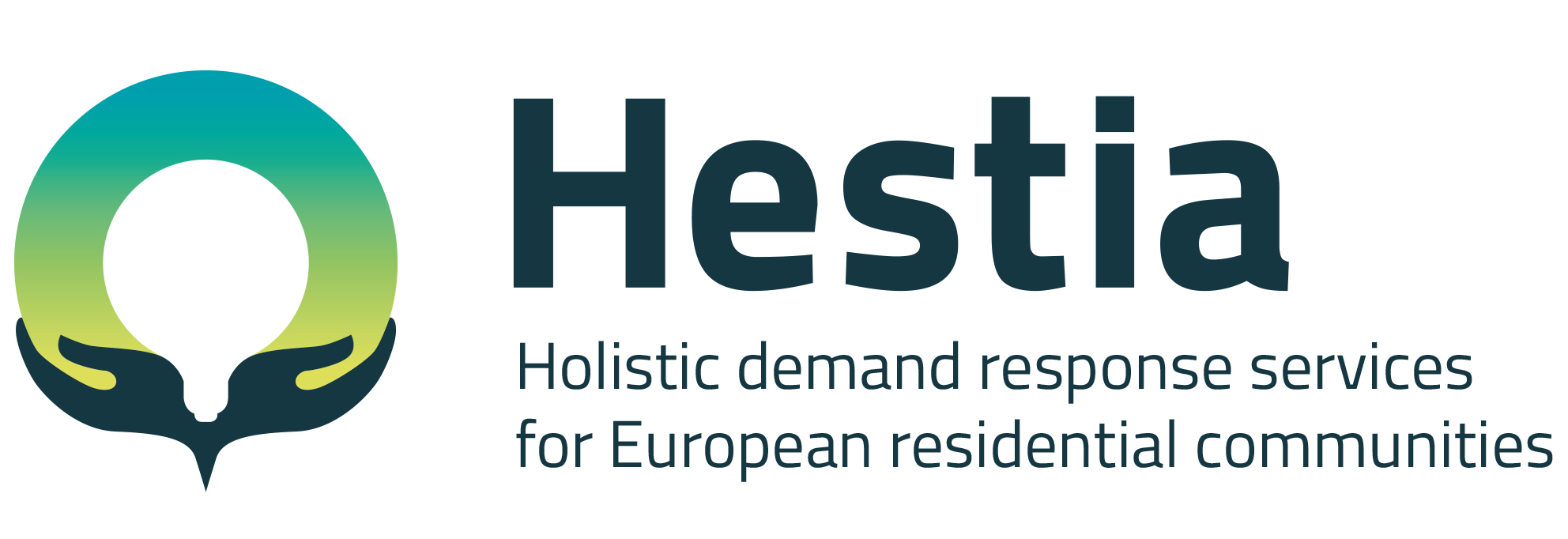
HESTIA, a new H2020 European project promoted by 19 partners from 9 different countries
Project duration: 36 months (Nov 2020 - Oct 2023)
The HESTIA project has already implemented pilot projects in residential areas, and in three years, it will launch a technology platform for more efficient energy use that is available to the entire population.
The goal of the European project Holistic dEmand response Services for European residenTIAl communities (HESTIA) financed by the EU and promoted by 19 companies, institutions, and clusters in Austria, Belgium, Denmark, France, Ireland, Italy, the Netherlands, Serbia, and Spain, is to encourage consumers to change the way they use energy so that it is more efficient, flexible, and beneficial in terms of both monthly expenditure and for the environment.
HESTIA was launched at the end of 2020, and project partners will spend three years developing various efforts and technological proposals focused on encouraging consumers to streamline energy use. Three pilot projects have already been implemented in residential areas in France, Italy, and the Netherlands to determine and analyze consumers’ energy habits and thus understand their preferences and needs when using energy and its infrastructure.
Once this data is extracted, a system will be created so that all those actors involved in energy use (providers, institutions, organizations, neighborhoods, etc.) can adjust and optimize their services depending on, for example, time periods, therefore following demand response criteria. This will improve the balance within the local network and save energy, which leads to cost savings (with a 20–50% reduction of the final bill) and supports the sustainability of natural resources and the protection of the environment.
Following the conclusion of the three pilot projects, HESTIA will seek to expand to other residential areas in Europe. The long-term goal is to reduce emissions and contribute to meeting the Sustainable Development Goals set by the United Nations, the 2030 Agenda, and the EU’s environmental, energy, and climate goals to become climate neutral by 2050.
The project has a total budget of €7.5M, including almost €6M contributed by the European Union, and its committee is made up of 19 partners from nine different countries, including energy and technology companies (ranging from energy storage to home automation manufacturing), public institutions, consulting firms, and clusters. HESTIA also participates in BRIDGE, an umbrella initiative that brings together ongoing European projects in the energy field and addresses aspects of data management, business models, regulation, and consumer engagement.
A Technology Platform Will Make It Possible
For HESTIA partners, changes in consumers’ energy habits will inevitably come hand in hand with technological development, since technology is what allows us to streamline energy habits, manage peak production and use, match supply and demand, incorporate prosumers (consumers who produce energy through renewable energy sources) into the grid, use blockchain to deliver data, predict energy use to optimize supply and distribution, and improve security and control through monitoring.
The various companies, and organizations participating in the project will carry out a continuous analysis to understand together with consumers the reality of energy use and optimize all possible processes thanks to the creation of a flexible and highly service-oriented technology platform that will incorporate elements of home automation, smart meters, and more. Concerning how the platform will be operated, several business models are currently being studied to bring the best one to the market by the end of 2023. Regardless, the ultimate goal is to make new technology solutions available to consumers and improve and optimize existing solutions to reduce costs and make them more accessible to the general public. Assisted living services will also be incorporated to help the elderly improve the energy management of their home in a way that is simple and personalized.
Consumers at the Center of Transformation
One of HESTIA’s most novel contributions is that it will lead to not only technical development but also innovation in social practices. HESTIA approaches the debate on the future of energy from a holistic point of view and turns the consumer into the main stakeholder in the energy sector since he/she can become a producer, learn how to modify their energy behavior, participate in and establish energy policies, manage infrastructure, and ultimately play a key role, which shifts the energy management paradigm.
HESTIA creates a methodology that involves society, in which consumers commit to sustainable behavior and responsibility, assisted by technological tools that will help them exercise this new role in an open market. In fact, one of the goals of the program is to motivate consumers to be prosumers and active participants, which is why residents where the pilot projects were implemented are already involved in designing solutions through participatory processes.

The 19 partners composing the HESTIA project are:
|
Follow us on Twitter
and LinkedIn
Download this press release here.





